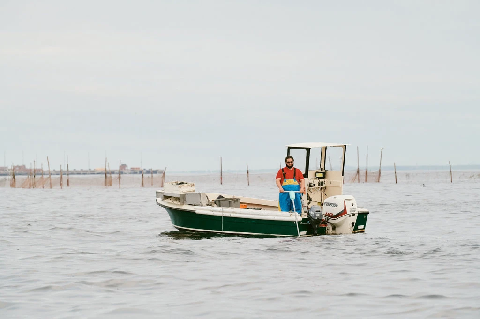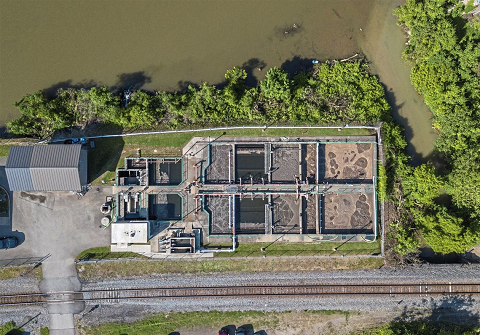
New York Rejects Keystone-Like Pipeline in Fierce Battle Over the State’s Energy Future
May 22, 2019
Toxic Frack Waste Damages Sewage Treatment Plant, Contaminates River
May 26, 2019By Don Hopey and David Templeton, Pittsburgh Post-Gazette, May 23, 2019
The Pennsylvania attorney general’s Environmental Crimes Section will investigate how landfill runoff damaged the Belle Vernon sewage treatment plant, causing contaminated wastewater discharges into the Monongahela River.
Speaking at a news conference Thursday afternoon in Uniontown, Washington County District Attorney Eugene Vittone said he asked state Attorney General Josh Shapiro to take over the investigation in a letter he sent Tuesday. Fayette County District Attorney Richard Bower said he planned to send a similar letter within the next few days.
The two district attorneys moved quickly last week to get a temporary injunction prohibiting the Westmoreland Sanitary Landfill in Rostraver, which also goes by the name Tervita-Rostraver Township Sanitary Landfill, from piping runoff contaminated by shale gas drilling and fracking waste chemicals to the sewage treatment plant. The plant is also prohibited from discharging any contaminated wastewater into the river.
“Public safety is the foremost objective of any district attorney in the state,” Mr. Vittone said. “”The potential threat to the river was stopped and will remain so. We did this because of the high volume of contaminated water flowing into the Belle Vernon sewage treatment plant and also because of questions about the chemical composition of the wastewater.”
The landfill turned off its pipeline to the plant on Saturday.
Mr. Vittone and Mr. Bower also announced Friday that the landfill owner and the Belle Vernon Municipal Authority, which operates the sewage treatment plant, had agreed to a consent order that will continue the terms of the injunction for 90 days while they seek to remedy the problem.
“The parties are enjoined from discharging any waste material into the Mon River, and signed the order which will give them an opportunity to work out the issue in ways that protect the river,” Mr. Bower said.
A hearing in Fayette County Common Pleas Court scheduled for Friday on a permanent injunction was postponed.
Mr. Vittone said last week’s decision to seek a temporary injunction was, “a successful and appropriate use of power vested in the district attorneys’ offices by the Pennsylvania Clean Streams Act.”
He said they acted to make sure the sewage plant discharges were not harming the river, which is the source of drinking water for several public water suppliers in the Mon Valley and Pittsburgh area communities.
Rebecca Franz, chief deputy attorney general, declined to say how her office would conduct the investigation or what its first steps would be, citing the “ongoing investigation” as the reason. She did say that the attorney general employs nine investigative agents, several with the ability to do field sampling.
“The district attorneys took great steps to remedy the discharges into the river last week,” Ms. Franz said.
“Pennsylvanians have a constitutional right to clean air and clean water and we are committed to protecting those rights.”
She declined to comment about whether the investigation will include a look at a scheme proposed by a state Department of Environmental Protection official in a January email to the Belle Vernon Municipal Authority engineering firm that proposed continuing to allow illegal sewage plant discharges into the river and have the landfill pay any fines for violations.
The temporary injunction was imposed two days after the Belle Vernon Municipal Authority voted to terminate its contract with the landfill, owned by Uniontown-based Nobel Environmental Inc., to treat its runoff, also called “leachate.” The leachate is piped about three miles to the treatment plant located along the Monongahela River.
According to Guy Kruppa, the sewage plant superintendent, the landfill was piping an average of 100,000 gallons of leachate a day to the sewage treatment plant, double the amount allowed in the contract. And chemical testing done by the authority found high levels of ammonia, total suspended solids, and a host of compounds associated with shale gas drilling and fracking, including volatile organic compounds, magnesium, barium, phenols and oil and grease.
Ro Rozier, a spokeswoman for the landfill owners, issued a statement saying the landfill has begun using alternative leachate disposal methods and would continue to “invest in onsite technology to improve leachate quality that will exceed government standards.”
DEP records show the landfill began accepting drilling “cullings” — rock and soil from deep underground produced by the drilling process — in 2010, and in 2017 that amounted to 119,716 tons of debris or 40 percent of the landfill’s total waste stream.



